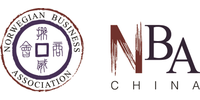DCCC invites you a breakfast seminar in Beijing on November 14th
to gain key insights into China's upcoming 15th Five-Year Plan (2026-2030) and its implications for your business in China.
This event is co-organized by Danish Chamber Commerce in China, Norwegian Business Association China, Swedish Chamber of Commerce and Finnish Chamber of Commerce, in collaboration with China Macro Group (CMG).
The CCP Central Committee's 4th Plenary Session will convene from 20–23 October 2025. Upon its conclusion, the Committee is expected to release the official "Proposition" outlining the core substance of China's upcoming 15th National Five-Year Plan (2026–2030; FYP). The plan will be formally endorsed at the National People's Congress (NPC) in March 2026 and subsequently published in full.
While the 14th FYP (2021–2025) was positioned as the most "important strategic shift" in China's development policymaking since the start of the reform and opening-up period in 1978, the forthcoming 15th FYP—the second last plan before Chinese leaders want to "basically achieve socialist modernization" in 2035 —is not expected to alter current policy trajectories. Instead, it will focus on refining, prioritizing and rebalancing China's development and reform policymaking within the existing "Dual Circulation" policy framework.
This framework, first created in 2020 responding to the cumulative effects especially of how Beijing sees Brexit and Trump 1.0, the trade war and the Covid pandemic, continues to serve as China's top-level economic and policy blueprint. It rests on six policy pillars: "domestic demand system", social rebalancing, "de-risking", "high-level opening-up", market-oriented reforms and industrial upgrading
An analysis of the CCP Politburo's communication on 29th September announcing the 4th Plenum and the upcoming 15th FYP "proposition", which is the first official policy text offering a first glimpse into the 15th FYP's substance, shows programmatic focus on social policy whereas the concrete policy concepts mentioned put priority on industrial upgrading and market reforms. This is, however, in our reading not a conflict, as China's "bet" on "emerging" and "future industries" is supposed to allow China to further climb the value chain, raise productivity and incomes to eventually drive household consumption. In other words, China keeps using an industrial lever to support the transition to a consumption-led economy.
Further, we expect that the 15th YP will also integrate newer policy concepts such as "anti-involution", "AI+" or "investing in people". In regard to "investing in people", the next FYP is expected – on top of its industrial logic – to expand social security and enhance urban livability. Finally, we also expect a de-emphasis within China's development-security paradigm as it sees progress achieved in critical "de-risking" areas for China's economy during the 14th FYP period.
Against this backdrop, in collaboration with China Macro Group (CMG), a specialized European management consulting and research firm, aims to provide in-depth analysis and interpretation of the "Proposition" document alongside other key current macro influencing factors such as macroeconomics and geopolitics, discuss its strategic implications for European businesses operating in China, and review key geopolitical factors shaping European cross-border commercial engagement.
DATE
14 November, 2025
TIME
08:00AM – 08:30AM Registration & Breakfast
08:30AM -10:00AM Presentation & Q&A
VENUE
Floor 8, KUNTAI TOWER
No. 10, Chaowai Street, Chaoyang District
朝阳文旅昆泰大厦8层
北京市朝阳区朝外大街10号
FEE
Member Ticket RMB 100
Non-member Ticket RMB 200
CANCELLATION POLICY
No refunds after 23:59, 6 November 2025.
Speakers
Tickets
Member Ticket (Sold Out)
RMB 100
Buy TicketFor members and partners of the Danish Chamber of Commerce in China
























































